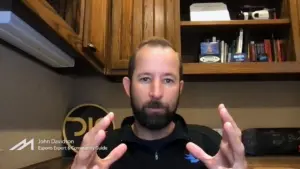How Unionizing in the Reality TV Industry Could Improve its Harsh Reality
There is a harsh reality to reality TV, and workers from the industry are trying to draw attention to it. Recently, nearly 20 workers employed at BSTV Entertainment (the studio that produces popular Food Network shows like Trisha’s Southern Kitchen and The Kitchen) signed union cards in a bid to join the Writers Guild of America East. Low wages, lack of health insurance, and gender-based discrimination were among their complaints. And if successful in their endeavors, the workers hope to change all of this. But what will be the effect of unionizing in the reality TV industry?
In the past, too, reality TV workers have raised similar complaints. A survey from The Hollywood Reporter, for instance, showed that many nonfiction TV workers had worked overtime without receiving adequate compensation. The effect of unionizing, therefore, is likely to raise production budgets — and filming schedules. In addition to this, producers may also have to offer pension and welfare benefits to their employees.
The Lovell Firm Founder Tre Lovell, who practices business, entertainment, intellectual property, corporate and employment law, tells us how the effect of unionizing in the reality TV industry will change its entire landscape — for the better.
Tre’s thoughts:
“My name is Trey Lovell. I’m an entertainment attorney here in Los Angeles. And with respect to unionizing in the reality television world, it’s a big deal. Unions in entertainment are extremely protective and have high standards. The Writers Guild Association, which represents the writers, the Screen Actors Guild, which is the acting side of it, even the union crew.
When you unionize and you’re subject to these, what they call, collateral bargaining agreements, they set minimum payments [and] they set a cap on hours that can be worked. They require a pension and welfare funding, and they have high thresholds. And reality television has typically not been part of this because of the way they film, the way they’re unscripted and often aren’t using a celebrity, or I should say, union talent. (They do use celebrities sometimes.) So, the effort to unionize reality television is going to change the whole landscape. The production budgets are going to become more, because now you’re going to have a lot of union talent that are going to govern at least the minimums. They may be longer schedules, because you’re going to be limited on durations, you can film during the day, as well as these [pension] obligations, and things like that. So, it’s certainly a big step. And with reality TV as it is, being such a large landscape on television, maybe the time has come to unionize and protect those that are in the reality world.”







